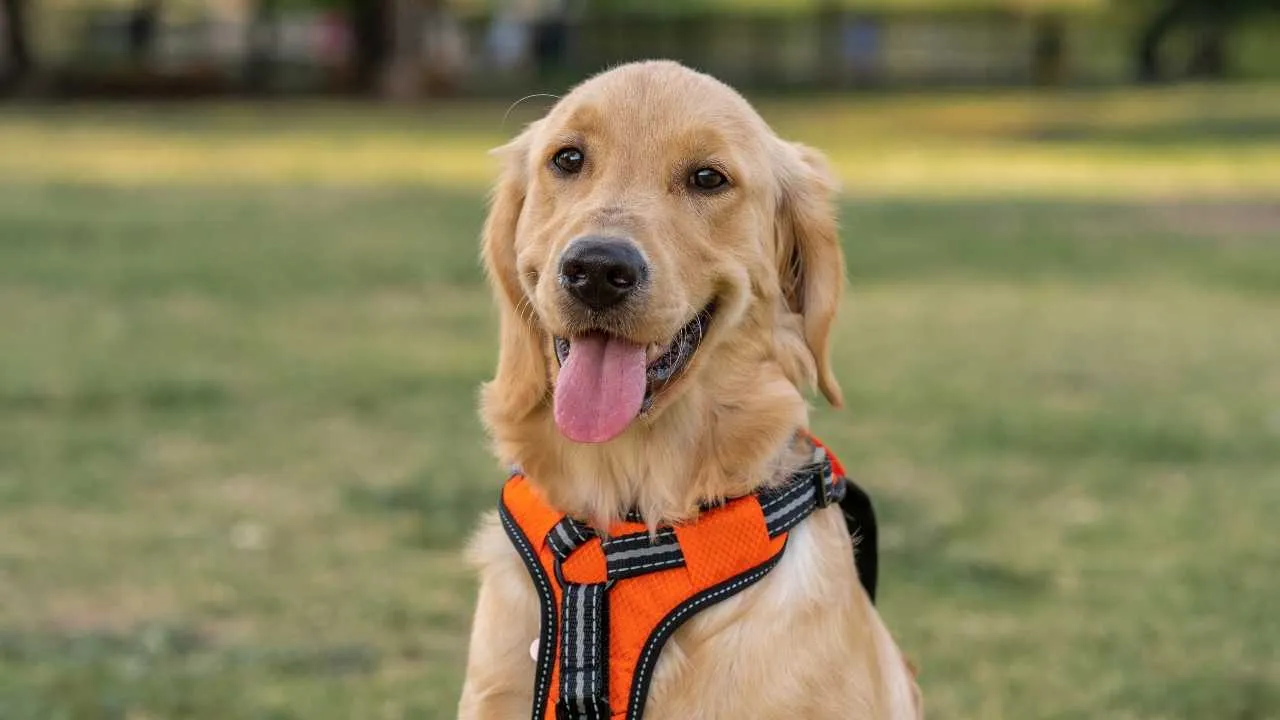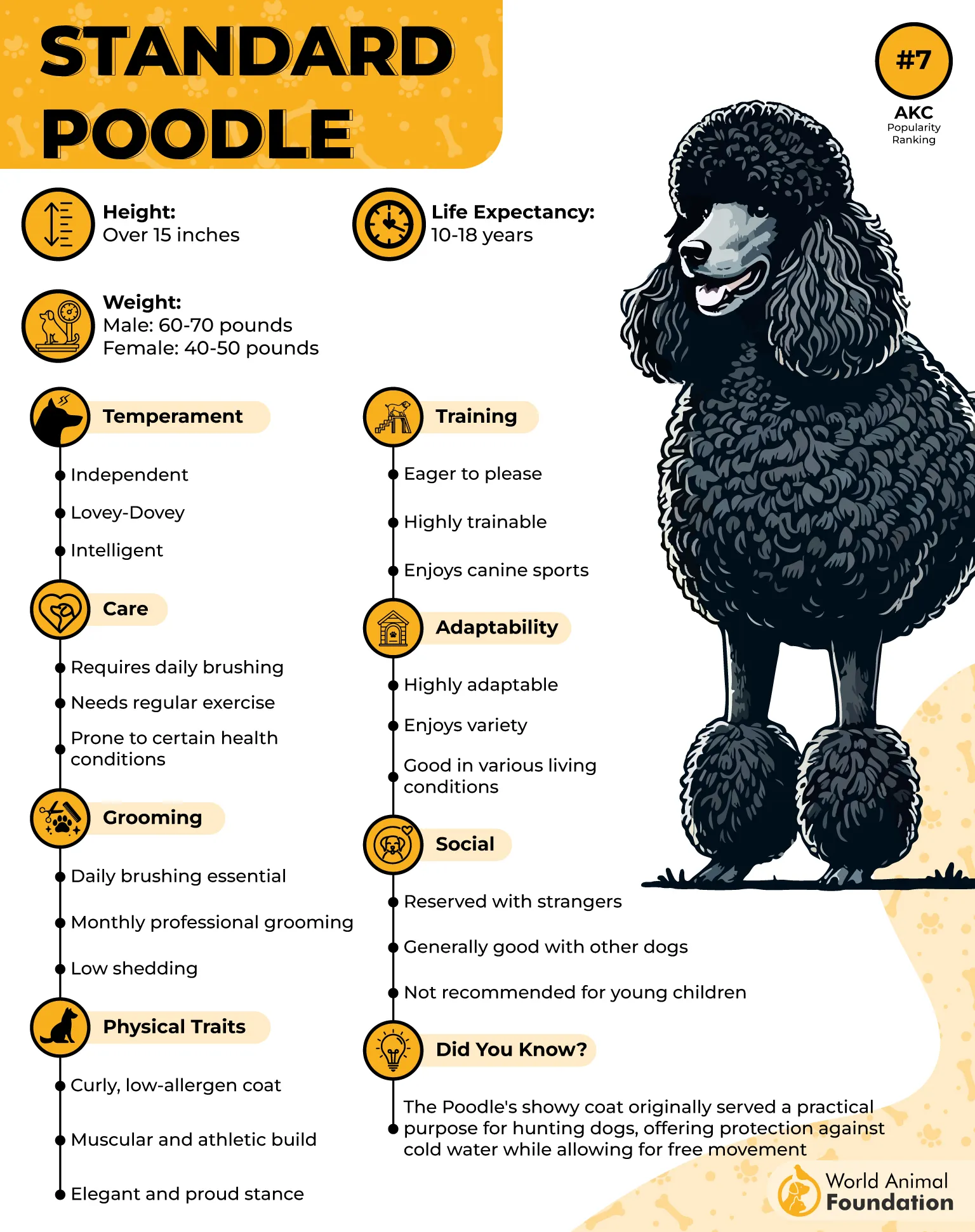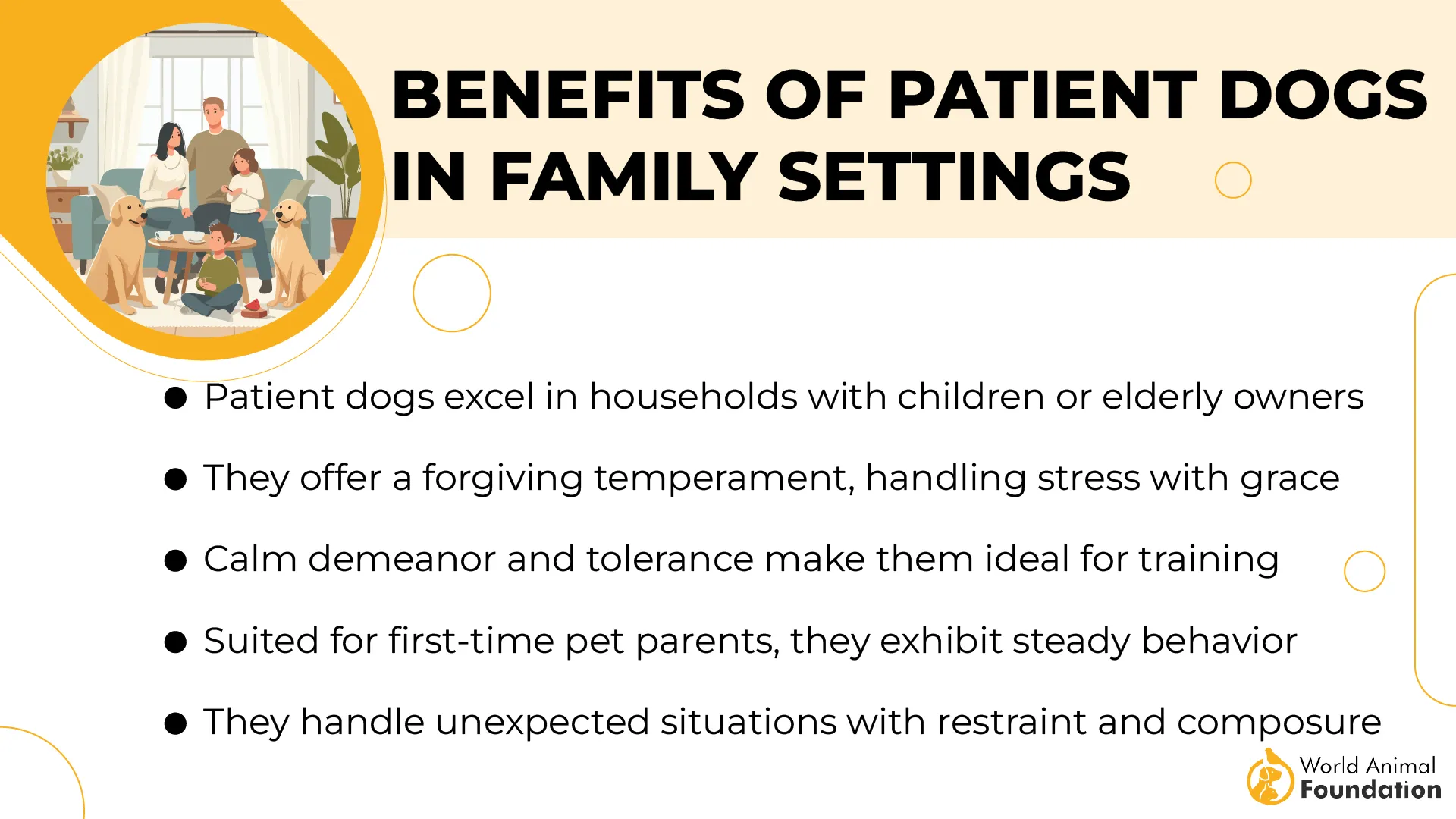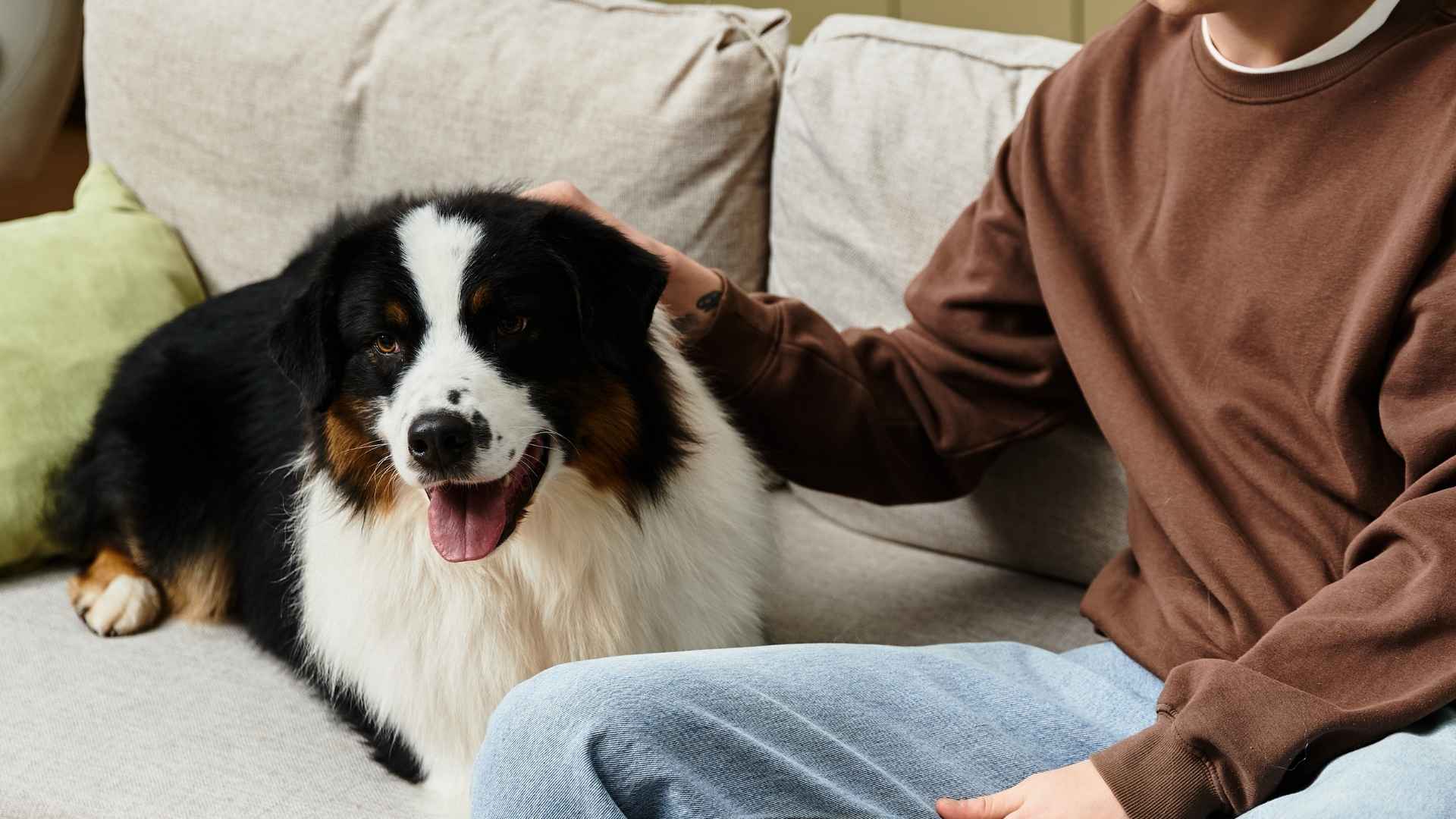Imagine living with a companion whose nose is thousands of times more sensitive than any medical device. A study has shown that some incredible alert dogs use their highly developed sense of smell to detect chemical changes in their owner’s breath, sweat, and even skin when blood sugar is either dangerously low or high. This capability turns them into life-saving diabetic alert dogs.
Unlike machines, these highly trained dogs offer constant companionship, real-time detection, and emotional support. For people with diabetes, especially children, these alert dogs offer peace of mind and security. Their incredible noses, paired with alert dog training, make a big difference in blood sugar regulation, often working alongside continuous glucose monitors.
Dog Breeds That Can Detect Diabetes
Throughout this article, we’ll explore the most effective diabetes service dog breeds, highlighting their natural instincts, training, and unique personalities that allow them to excel in this vital role.
1. Golden Retriever

Golden Retrievers shine as one of the most popular diabetic alert dogs thanks to their natural sensitivity and gentle temperament. Their remarkable ability to detect even slight changes in blood sugar levels makes them outstanding for diabetes alert work. With proper training, Golden Retrievers can sense fluctuations long before devices like glucose monitors detect danger.
They not only alert their owners to take appropriate measures, but also provide emotional support during stressful moments. Their highly intelligent and eager-to-please nature ensures they’re reliable in real-world scenarios where consistency matters most.

Golden Retrievers don’t just serve—they become lifesaving partners in the ongoing journey of blood sugar regulation.
2. Standard Poodle

The Standard Poodle stands out among diabetic alert dogs due to its remarkable intelligence and hypoallergenic coat. As a service dog, it excels in detecting sugar changes linked to both high and low levels of sugar in blood. Their keen sense of smell allows them to notice subtle shifts in their owner’s body chemistry, making them reliable for ongoing blood sugar regulation.
Since they’re highly trainable, many organizations use Standard Poodles in alert dog training programs for people with diabetes.

Their calm temperament helps reduce anxiety while offering constant emotional support, making a huge difference in daily life.
3. German Shepherd

The German Shepherd is one of the most widely recognized diabetic alert dog breeds. Known for their trainable nature and strong sense of smell, they can reliably detect changes in blood chemistry related to sugar levels. Their intense loyalty makes them excellent service dogs for people with diabetes, providing both emotional and physical support.

Their loyalty ensures they remain vigilant during sleep, helping people with diabetes manage this chronic condition with more confidence and support.
These alert dogs not only respond to fluctuating glucose levels but also notify owners during sleep, potentially preventing dangerous episodes of hypoglycemia. With their natural protective instincts, they are highly suited for families managing diabetes. Their diabetic alert work can make a huge difference in long-term diabetes management.
4. Border Collie
The Border Collie’s unmatched intelligence and agility make it one of the best diabetic alert service dogs. Originally bred as herding dogs, their keen instincts allow them to pick up on subtle blood glucose changes before they become dangerous.
Their natural ability to read their owners closely, paired with advanced alert dog training, ensures timely responses to both low and high blood glucose episodes. Their high energy and eagerness to please also contribute to their success in diabetic alert work.

According to AKC, their energetic nature keeps them ready to respond promptly, even during the night, minimizing risks from sudden hypoglycemia.
5. Australian Shepherd
The Australian Shepherd is highly regarded for its exceptional intelligence, making it a superb diabetic alert dog. With advanced alert dog training, they become skilled at sensing shifts.
According to WebMD, Aussies are known for their adaptability in complex tasks. Their energetic and trainable nature ensures they remain reliable and alert throughout their working life.
These diabetes service dogs use their keen sense of smell to detect early warning signs of low blood glucose levels, allowing owners to take appropriate measures before critical symptoms arise.
6. Bernese Mountain Dog
The Bernese Mountain Dog, with its gentle yet vigilant temperament, excels as a diabetic alert dog. Thanks to its strong bond with its owners, it can quickly sense blood sugar changes through scent and behavior shifts.
This diabetes service dog proves invaluable in detecting early signs of both low and high blood glucose concentrations, preventing emergencies for people with diabetes. Their calm nature also brings comfort, reducing anxiety during unpredictable blood sugar level swings. Known for being highly intelligent, they adapt well to consistent training, making them reliable partners for long-term diabetes management.

Pettable highlights their suitability for medical alert roles due to their calm demeanor and trainability.
7. Boxer
Boxers, with their protective instincts and keen intelligence, are gaining recognition as excellent diabetic alert dogs. These dogs use their sharp sense of smell to detect blood sugar changes, alerting their owners promptly during dangerous shifts in blood sugar levels such as low blood sugar or high blood sugar.
Boxers are among the breeds trained to recognize blood glucose fluctuations, ensuring timely interventions for safer diabetes management.
Their natural attentiveness allows them to excel in diabetic alert work, offering safety and comfort to people living with diabetes. Their energetic yet obedient personalities help them stay focused even in crowded environments.
8. Doberman Pinscher
Doberman Pinschers offer more than strength and elegance—they’re increasingly valued as diabetic alert dogs. Their sharp intellect allows for advanced alert dog training, where they’re taught to recognize specific chemical changes linked to blood sugar levels.
Whether dealing with high blood sugar or sudden hypoglycemia, Dobermans quickly signal their owners, allowing immediate care. Dobermans excel in medical response roles, including as diabetic alert service dogs.
Their loyalty ensures they remain attentive day and night, providing safety during sleep, walking, or work. With their highly trainable and focused personality, they’ve become essential partners in diabetes management, supporting both physical health and emotional well-being.
9. Cocker Spaniel
The Cocker Spaniel is gaining recognition as a valuable diabetic alert dog due to its exceptional sense of smell and strong bond with owners. With proper alert dog training, they can accurately detect sugar in blood changes and alert their people with diabetes before dangerous symptoms appear. Their compact size and friendly personality make them ideal for both children and adults requiring continuous support.
Cocker Spaniels were originally hunting dogs, specifically bred to hunt woodcock birds—hence the name “Cocker.” This natural hunting instinct translates into an exceptional ability to detect subtle scent changes in sugar levels in blood, making them surprisingly suited for diabetic alert service dog work.
Conclusion
Diabetic alert dogs serve for many reasons beyond just detecting glucose levels. These highly intelligent animals, like Labrador Retrievers, Miniature Schnauzers, and other dogs, offer vital support to people with diabetes by sensing dangerous shifts in blood sugar levels.
With proper veterinary care and specialized alert dog training, these dogs help support people in managing this chronic disease daily. For many owners, they provide not only health protection but also emotional comfort, improving mental health and overall life quality.
While insulin therapy remains central, the role of these smart pets continues to grow in modern blood sugar regulation, offering unmatched companionship and safety.


